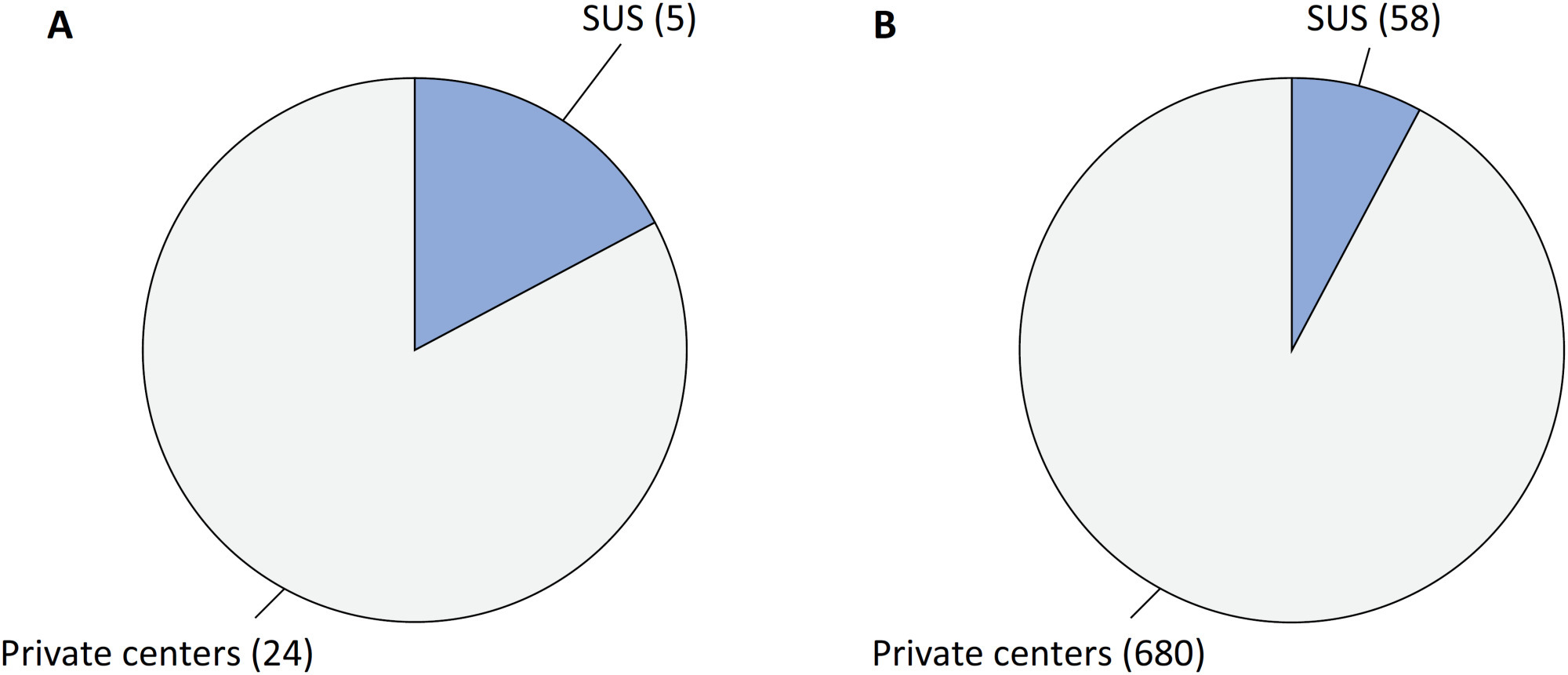
Since 1990, the Brazilian public health care system, known as the Unified Health System (SUS – Sistema Único de Saúde), has provided free health care services to all individuals throughout the country. However, approximately 24.9% of the Brazilian population has the financial means to afford private health care alternatives.() Equity, a fundamental principle of SUS, has been extensively discussed in various dimensions of public health and ethics. Efforts have focused on investing in public health interventions to prevent further exacerbation of inequalities among less privileged individuals. For example, high-quality child public health programs have been widely accessible since 2000. Paradoxically, these programs are more frequently utilized by families in the Southern Region, who are in comparatively less need, as opposed to those in the Northeastern Region. This phenomenon has been referred to as the “inverse equity hypothesis”.() The introduction of new technologies may also have a considerable impact on exacerbating existing inequities.
The coronavirus disease 2019 (COVID-19) pandemic has placed an immense burden on the already limited structural, material, human resource, and financial capacity of SUS, leading to an increased in-hospital mortality rate.() Nonetheless, despite numerous political and moral challenges, from a catastrophe management standpoint, the response of SUS has been remarkable, instilling trust and pride among its users.() The pandemic has substantially increased the demand for intensive care unit (ICU) resources in Brazil, including the utilization of extracorporeal membrane oxygenation (ECMO) procedures. On May 13, 2021, the Brazilian Health Technology Assessment Committee (CONITEC – Comissão Nacional de Incorporação de Tecnologias) evaluated the potential inclusion of ECMO in SUS coverage during its fifth extraordinary meeting. However, the committee denied this coverage, citing the high cost and the potential exacerbation of inequities among different geographic regions in Brazil as the reasons for denial.()
[…]
Search
Search in:


Comments